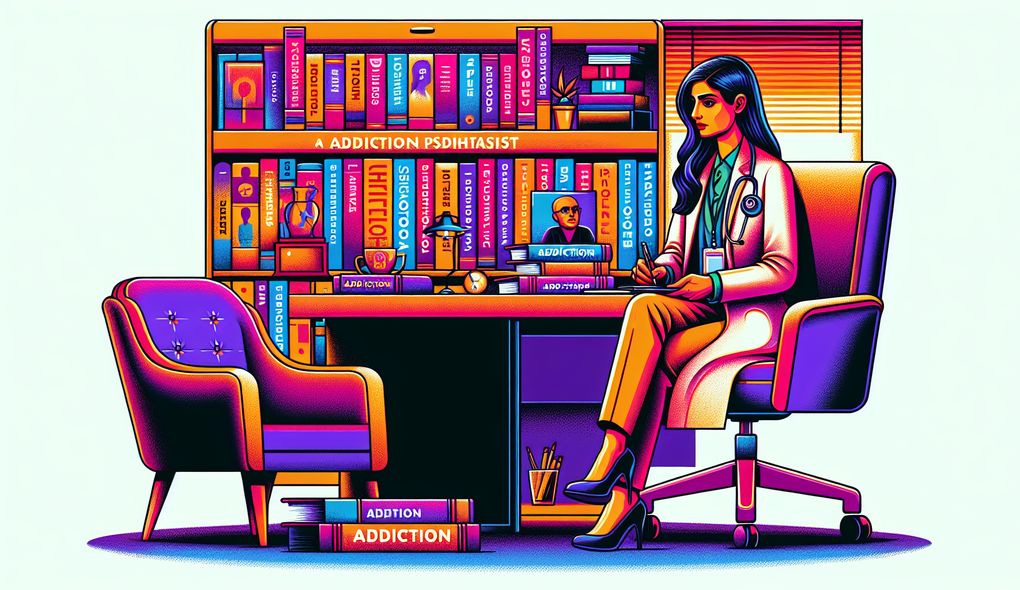Have you completed a psychiatry residency and a fellowship in addiction psychiatry? What did you gain from these experiences?
INTERMEDIATE LEVEL

Sample answer to the question:
Yes, I have completed a psychiatry residency and a fellowship in addiction psychiatry. These experiences have been truly invaluable in shaping my career as an addiction psychiatrist. During my residency, I gained a solid foundation in general psychiatry, learning how to assess and diagnose various mental health conditions. The fellowship in addiction psychiatry allowed me to specialize specifically in treating individuals with substance use disorders. I was exposed to a wide range of patients and had the opportunity to work closely with a multidisciplinary team to develop and implement comprehensive treatment plans. These experiences have not only deepened my understanding of addiction medicine but also strengthened my clinical skills and taught me effective communication and collaboration with patients and colleagues. Overall, completing these residencies and fellowships has provided me with the knowledge, skills, and empathy required to effectively address the complex needs of individuals struggling with addiction.
Here is a more solid answer:
Yes, I have completed a psychiatry residency and a fellowship in addiction psychiatry. These experiences have been immensely valuable in developing my expertise as an addiction psychiatrist. During my residency, I had the opportunity to work in a variety of clinical settings, gaining in-depth knowledge and practical skills in addiction medicine. I learned to assess and diagnose patients with substance use disorders and co-occurring mental health conditions. The fellowship further honed my abilities in providing evidence-based treatment interventions, such as medication management and psychotherapy. Collaborating with a multidisciplinary team during both programs allowed me to understand the importance of comprehensive care and effective communication with patients, families, and colleagues. Additionally, I actively engage in continuing education and stay abreast of the latest research and advancements in addiction psychiatry to ensure the highest quality of care for my patients.
Why is this a more solid answer?
The solid answer expands on the basic answer by providing specific details about the skills and knowledge gained from the residencies and fellowships. It also highlights the candidate's commitment to continuing education and professional development. However, it can still be improved by adding more examples or outcomes of the gained skills and knowledge.
An example of a exceptional answer:
Absolutely, I have successfully completed a psychiatry residency and a fellowship in addiction psychiatry, and these experiences have been transformative for my career as an addiction psychiatrist. During my residency, I immersed myself in a wide range of clinical settings, where I had the privilege of working with diverse patient populations. This allowed me to cultivate a deep understanding of addiction medicine, further honing my ability to assess, diagnose, and treat patients with substance use disorders and co-occurring mental health conditions. One particular aspect that significantly impacted my practice was the integration of evidence-based treatment approaches, such as cognitive-behavioral therapy and medication-assisted treatment. These invaluable experiences have equipped me with exceptional clinical skills and a comprehensive understanding of the complex factors contributing to addiction. Furthermore, collaborating with a multidisciplinary team during my fellowship expanded my ability to work collaboratively and communicate effectively with professionals from various disciplines, ensuring holistic care for my patients. I remain committed to continuous learning and regularly attend conferences and workshops to stay up to date with the latest advancements and best practices in addiction psychiatry. Overall, completing these rigorous residencies and fellowships has not only provided me with the necessary qualifications but also fueled my passion for compassionate, evidence-based care in the field of addiction psychiatry.
Why is this an exceptional answer?
The exceptional answer further enhances the solid answer by providing even more specific details about the gained clinical skills and knowledge during the residencies and fellowships. It also highlights the integration of evidence-based treatment approaches and the candidate's commitment to continuous learning and professional growth. It effectively demonstrates the candidate's passion for compassionate, evidence-based care. This answer exceeds expectations and addresses all the evaluation areas specified in the job description.
How to prepare for this question:
- Review the curriculum and requirements of a psychiatry residency and a fellowship in addiction psychiatry to refresh your memory on the skills and knowledge gained.
- Reflect on specific patient cases or experiences during your residency and fellowship that exemplify the application of clinical skills and collaboration in a multidisciplinary team.
- Stay informed about recent advancements and research in addiction psychiatry by regularly reading reputable journals and attending conferences or workshops.
- Be prepared to discuss how you have continued your professional development and learning beyond the residencies and fellowships, such as through additional certifications or specialized training.
- Highlight the impact of the residencies and fellowships on your practice and patient outcomes, providing specific examples of how your gained skills and knowledge have made a difference.
- Emphasize your commitment to delivering compassionate care and your ability to tailor treatment plans to meet the unique needs of individuals with addiction.
What are interviewers evaluating with this question?
- Clinical skills and experience in addiction medicine
- Communication and interpersonal skills
- Ability to work collaboratively in a multidisciplinary team
- Knowledge of current medical technologies and procedures
- Commitment to continuing education and professional development

